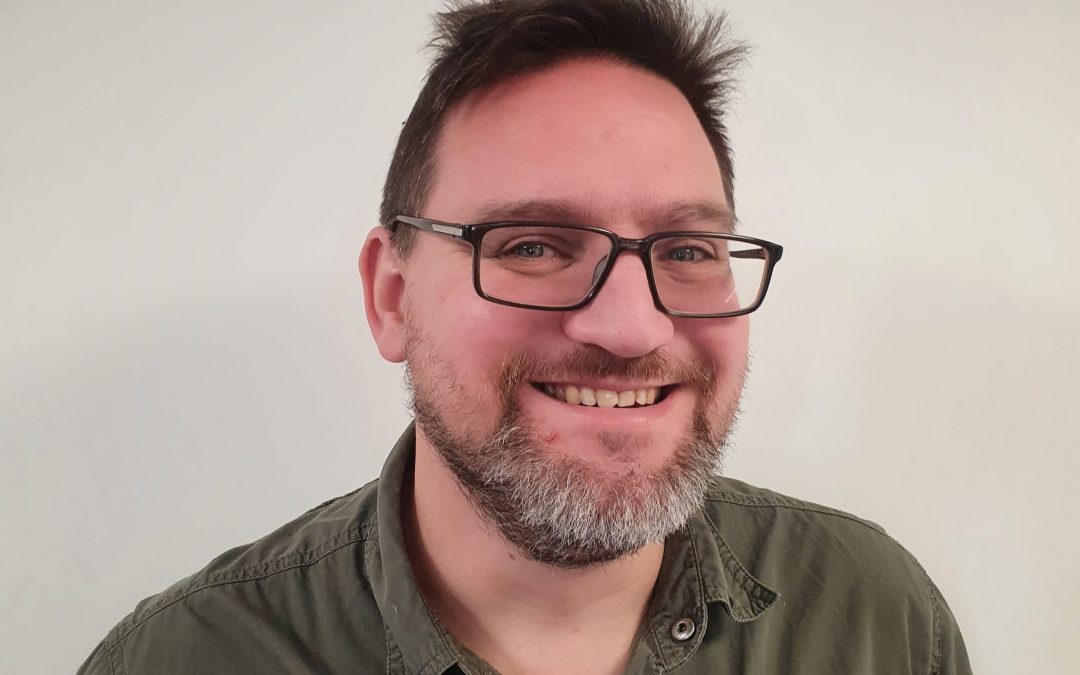Working in Faith at the Margins.
Hi, I’m Paul Coleman, the Faith at the Margins Lead at Leeds Church Institute. I thought I should take this opportunity to tell you a little about myself and my new role. Prior to joining LCI I worked as the Mission and Ministry Enabler for the Leeds North and East Methodist Circuit, amongst other things setting up the East Leeds Repair Café in Crossgates. Before that I worked as the Associate Curator of Television and Broadcasting at the Science and Media Museum in Bradford, while completing my PhD on history of energy security at the University of Leeds. I’m a local preacher in training with the Methodist church and on a Sunday morning if I am not leading the service, you will probably find me behind a piano or possibly the sound desk. Outside of church I am an avid PC gamer and enjoy a wide range of game styles. I also love going walking and always take my camera along and will often be found lying in the mud trying to get a close up of an interesting plant or fungus.
‘My role at LCI is to develop and run learning opportunities, share resources and plan events. I will be cultivating relationships with churches, faith leaders and organisations across Leeds whose focus is on ecumenical mission and further develop thinking around city life, poverty, inequality and justice.
Since starting my role as Faith at the Margins Lead in early November, I’ve been grappling with just what it is we mean when talking about faith at the margins. As we draw towards the end of January, I am pleased to be able to report that I’m making progress in tackling this question and am looking forward to journeying with others across this amazingly diverse city as we seek to engage with “faith at the margins.”
So where the margins are and who is on them depends very much on where you are standing. Coming from a background working for the Methodist Church I have been used to talking about “Church at the Margins” which has a specific focus on being part of a gathered community of disciples joining in with God’s work in areas of social and economic deprivation. On the face of it this is very similar to “Faith at the Margins”, however, rather than being part of a gathered community, my role involves taking a step back and sharing the stories and experiences of those who consider themselves to be at the margins of society. I also listen to the voices of the mainstream church communities as they seek to respond in an inclusive manner to those on the margins.
One thing I have realised and am looking forward to investigating in more depth, is the idea of the margins as ‘liminal’ spaces and places of encounter. Encounter with God and encounter with those who are, for whatever reason, different to us. In Luke 4 Jesus reads from the book of Isaiah;
“The Spirit of the Lord is upon me, because he has anointed me to proclaim good news to the poor. He has sent me to proclaim liberty to the captives and recovering of sight to the blind, to set at liberty those who are oppressed, to proclaim the year of the Lord’s favour.” (Luke 4:18-19)
If our commission is to continue the work of Jesus in our own communities, then we need to follow his example and go first to those on the margins and join in with and celebrate the work that God is already doing in those places.
This year I am developing two major projects, the first with the broad title of “Made in God’s Image” speaking to people who are marginalised due to disability, mental health or gender and sexuality. Rather than trying to tackle all of these immense topics at the same time this year we will begin by focusing on issues relating to marginalisation and disability, and I would love to speak to people with experiences of marginalisation in faith settings due to physical or mental disability. The second project has the working title of “East Leeds Stories” working with church communities in East Leeds. The aim of this project is to share stories and experiences of Faith at the Margins in East Leeds as churches get to grips what it means for them to live and work as people of faith in their communities.
Where possible I will be taking an approach based on Theological Action Research. This approach was “established to help faith-based organisations and church groups adopt an approach to research which would help bring about definite and practical changes within that their agency or community.” For my work, no matter what the margin, the basic questions remain the same.
What does inclusion look like for those at the margins of society?
And
How do we as Christians in Leeds move from a model of assimilation, in which everyone is welcome as long as they fit into our moulds, to a model of inclusion in which church communities adapt to enable those on the margins to feel welcomed, celebrated and included for who they are?
If you would like to join me in exploring these questions, please get in touch by emailing me at [email protected]

